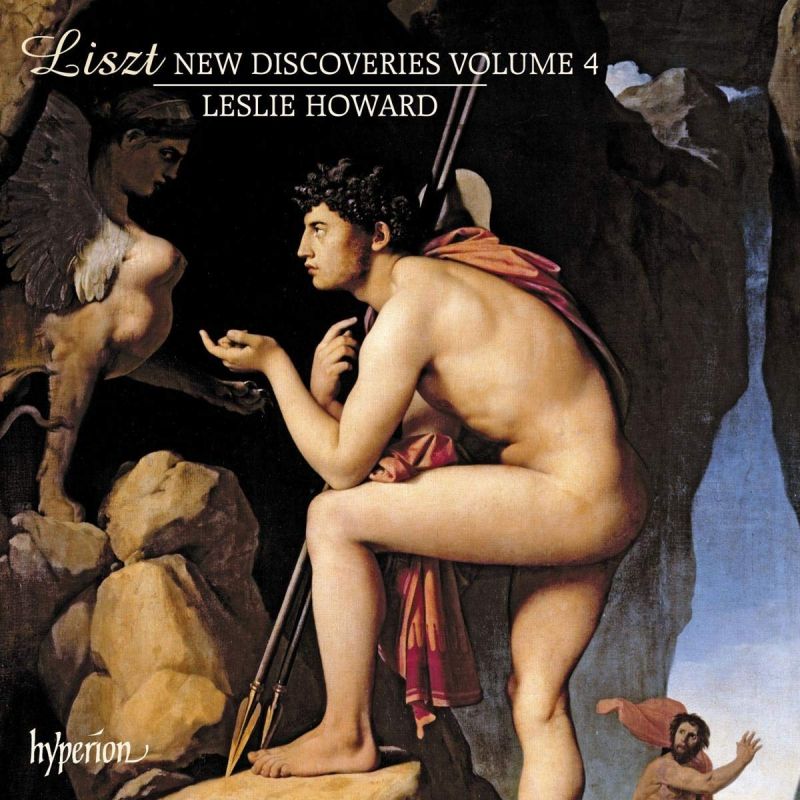LISZT New Discoveries Vol 4 (Leslie Howard)
View record and artist detailsRecord and Artist Details
Genre:
Instrumental
Label: Hyperion
Magazine Review Date: 10/2018
Media Format: CD or Download
Media Runtime: 74
Mastering:
DDD
Catalogue Number: CDA68247

Author: Jeremy Nicholas
All the recordings are believed to be world premieres. The majority of the 19 titles are first drafts, second drafts, alternative versions and suchlike that have already appeared on Howard’s monumental series in their final garb, including five Album-Leaves (the shortest lasting 17 seconds, the longest 55) and two scraps of juvenilia (1'56" and 1'16" respectively). There is the first draft of the Bülow-Marsch (1883) which even Howard admits is ‘the composer having a bad day at the office’. Of the other shortish works only the Album-Leaf ‘Aus dem Mephisto-Walzer’ (a stand-alone piece using material from the central section of the Mephisto Waltz No 1) and the Kavallerie-Geschwindmarsch (1870) are viable for recital, this latter described by Howard as ‘full of amusement and delightful unimportance’ and ‘the single most elusive publication from Liszt’s lifetime’. He makes of it a cheerfully effective encore.
The two longer works here will ultimately tip you towards a purchase (or not): Maometto II de Rossini is a substantial (8'34") section of an unfinished operatic fantasy based, I learn, on ‘Risponda a te primiero’, the chorus from Act 1 of the opera. This is the virtuoso Liszt (it was written in 1839 and certainly gives the pianist and his septuagenarian fingers a challenging work out) but I question if this ‘marvellous torso’ (Howard) is marvellous enough to earn the affection of pianists. The same must be said for the opening item of the disc, which is in effect the Hungarian Rhapsody No 23 (1847). Only recently published, at 21'54" it is the longest by a country mile of Liszt’s essays in modus hungarica. Its meandering course and lack of memorable thematic material put it outside the canon for this listener, but let not that detract from a superbly played (and researched) addition to this extraordinary artist’s legacy.
Discover the world's largest classical music catalogue with Presto Music.

Gramophone Digital Club
- Digital Edition
- Digital Archive
- Reviews Database
- Full website access
From £8.75 / month
Subscribe
Gramophone Full Club
- Print Edition
- Digital Edition
- Digital Archive
- Reviews Database
- Full website access
From £11.00 / month
Subscribe
If you are a library, university or other organisation that would be interested in an institutional subscription to Gramophone please click here for further information.




